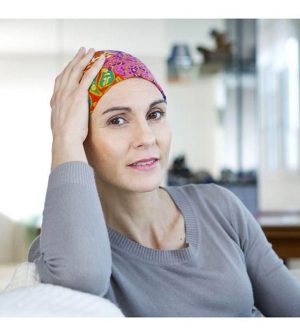- Recognizing the Signs of Hypothyroidism
- 10 Strategies to Overcome Insomnia
- Could Artificial Sweeteners Be Aging the Brain Faster?
- Techniques for Soothing Your Nervous System
- Does the Water in Your House Smell Funny? Here’s Why
- Can a Daily Dose of Apple Cider Vinegar Actually Aid Weight Loss?
- 6 Health Beverages That Can Actually Spike Your Blood Sugar
- Treatment Options for Social Anxiety Disorder
- Understanding the Connection Between Anxiety and Depression
- How Daily Prunes Can Influence Cholesterol and Inflammation
Almost All Cancer Patients Respond Well to COVID-19 Vaccines

Most cancer patients have a good immune response to COVID-19 mRNA vaccines, new research shows.
Two of the three approved vaccines in the United States — Pfizer and Moderna — are mRNA vaccines.
Researchers assessed 131 cancer patients and found that 94% developed antibodies to the new coronavirus three to four weeks after their second dose of a mRNA vaccine.
Patients’ median age was 63 (meaning half were older, half younger). Most (106) had solid tumors.
Patients with blood cancers such as myeloma and Hodgkin’s lymphoma were less likely to respond to vaccination than those with solid tumors.
“We could not find any antibodies against the virus in those patients,” said corresponding author Dr. Dimpy Shah of the Mays Cancer Center at the University of Texas at San Antonio. “That has implications for the future. Should we provide a third dose of vaccine after cancer therapy has completed in certain high-risk patients?”
Among high-risk patients, those receiving the drug Rituximab within six months of vaccination developed no antibodies. Rituximab is a monoclonal antibody used to treat blood cancers and autoimmune diseases.
Patients on chemo developed antibody response, but it was weaker than in the general population, according to findings recently published in the journal Cancer Cell.
“How that relates to protection against COVID-19, we don’t know yet,” Shah said.
The findings suggest that high-risk patients should take precautions against infection even after vaccination, the researchers said.
They also found a significant differences in cancer patients’ immune response when they received two vaccine doses compared to one. “At least for patients with cancer, two doses are very important for robust antibody response,” Shah said.
Eighty percent of cancer patients studied were white people; 18% were Hispanic patients; and 2% were Black patients.
“We recommend that future studies be done in Black, Asian and Hispanic patients, as well, to see if there are any differences in vaccination immune response,” said study senior co-author Dr. Ruben Mesa, executive director of the Mays Cancer Center.
The study did not examine coronavirus variants, including the highly contagious Delta variant, and it did not analyze how infection-fighting T-cells and B-cells in the cancer patients responded to vaccination.
More information
The American Cancer Society has more on COVID-19.
SOURCE: University of Texas Health Science Center at San Antonio, news release, July 1, 2021
Source: HealthDay
Copyright © 2026 HealthDay. All rights reserved.










